The Council of PR Firms, chaired by Dave Senay of FleishmanHillard, is making a major push to identify itself with ethical conduct.
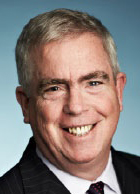 Senay |
It has a seven-part resource called "Ethics as Culture" that provides an ethical checklist, training workbook, and "Ethics as Culture Presentation" that can be given to employees.
Senay himself, in a "commencement address" to grads throughout the U.S. on May 22, called on them to do "what is right" and not "go with the flow."
In a July 17 CPRF posting, he inveighed against "a tide of unscrupulous activities and corporations that bend the rules in the name of profit" and urged employees to serve clients "in the most ethical manner possible."
We're glad Senay is making such a big deal about ethics and we hope he follows through when thorny issues come up.
CPRF In Flap with Ad/PR Exec
One came up last week when it was revealed via a Twitter burst that CPRF had invited, then dis-invited, and then invited again someone to speak at its career forum Oct. 3 at Boston University.
The "someone" was Edward Boches, chief innovation officer at Mullen, a major Boston ad/marketing PR firm owned by Interpublic and who is also a professor at BU.
He heard through a third party that CPRF dis-invited him because it mistakenly thought he was an "ad executive."
Boches, who has an extensive background in PR as well as advertising, having started his career as a corporate PR specialist and having led the Mullen PR unit, posted his own 1,023-word take on this flap.
He castigated CPRF for failing to do its "homework" on him and failure to realize that advertising and PR are working closely together these days. "Shouldn't we all be working together? Learning each others' skills? Understanding how to leverage each others' strengths?" he asked.
Career Forum Is Key Issue
What wound us up on this topic was the discovery that CPRF is conducting some sort of career forums at BU and other colleges. They are not on the event calendar on the CPRF website.
Ad executives as well as marketing and PR executives should speak at these forums but so should journalists and service firm reps.
Students should hear from journalists themselves what are their experiences with PR people these days.
There has been an explosion of PR service firms in recent years and there are many jobs in that sector.
The tech-savvy service firms are encroaching on duties once considered the preserve of PR firms.
 Boches |
PR practitioners are well aware of this. PR Society of America closed its exhibit hall from 1995-99 after nearly 50 service firms organized in New York and formed the PR Service Council.
The PR Society, aware that the January O'Dwyer's magazine publishes the PR Buyer's Guide to nearly 1,000 PR products and services, has blocked O'Dwyer reporters from entering the exhibit hall two years in a row. It looks like 2013 will be the third year.
Society spokesperson Stephanie Cegielski won't answer the question of whether O'Dwyer reporters will be allowed in the exhibit hall.
PRS does not want us taking pictures of the exhibits and interviewing their staffers for features in our January magazine.
Students should be aware of the tooth and claw nature of business competition.
Blocking reporters from stories is unethical by any measure and we hope Senay will acknowledge this.
Lite Fare at PR "Career Days"
One of the main things students need is information. We see no evidence of a "literature table" being set up at the Boston event.
Such a table would contain donated copies of O'Dwyer's Directory of PR Firms and the 2012 Contact directory of PR Week/U.S., which lists companies as well as PR firms (Contact is only available online now).
Copies of the O'Dwyer and PRW magazines should also be available as well as copies of other PR trade publications.
The PR Society should provide copies of its nearly 1,000-page 2005 Bluebook of members, an excellent job-hunting tool that listed nearly 20,000 members alphabetically, geographically and by company. PR professors describe this as a cornucopia of information for students that is sorely missed.
PR students, who are about to face the real world, need a strong dose of what is out there.
An excellent volume that captures the go-go nature of PR firm life is Army of Entrepreneurs by Jennifer Prosek, who heads the $15 million firm of Prosek Partners, New York.
Prosek's employees are constantly on the search for new clients wherever they happen to be including the gym or on an airplane (always fly first-class where business people are apt to be).
Students must face the reality that many of them will have to start their own freelance businesses. The royal route to a PR firm job is to bring in a client. That trumps internships no matter how many a student has done.
We offered copies of these and other books to PR Society chapter career days in Atlanta Feb. 22 and New York April 2 but chapter leaders turned a deaf ear to such offers.
Their attitude was that this was "their" career days and they would run them the way they wanted to.
Students Covered Two Career Days
Although reporters were banned from both events, local journalism students were only too glad to cover for us and provided excellent copy and pictures. They were astounded that chapter leaders turned down offers of free directories, books and magazines.
The student who covered the Atlanta forum said speakers described PR as an activity that does not turn a profit and that students should go into PR for the "love" of it.
Students at the NYU function heard numerous speeches extolling PR as a career. The PR Foundation, one of the sponsors, is making a special effort to recruit minorities to the industry.
Kathy Cripps, paid president of CPRF, described Harold Burson's view of PR as "creating, changing and reinforcing opinion and attitudes."
But Burson, receiving the PR Foundation's Paladin Award in 2011, also said PR people have four duties -- listening, being "corporate consciences," serving as ombudsmen in behalf of the press and public, and communicating (answering questions).
Here's a Way to Be Ethical
Financial reporting habits of non-profits, including CPRF and the PR Society, are almost uniformly pathetic—too little and too late. The 990 Tax returns are often not available online until a year later and are rarely posted prominently on the organization's website.
Two exceptions are the Independent Sector, and ProPublica.
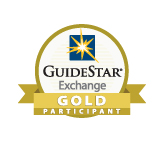 IS, which had $13 million in income in 2012 and which is holding its annual meeting in New York Sept 28-30, has earned the GuideStar Exchange Gold Participant seal by demonstrating exemplary "commitment to transparency."
IS, which had $13 million in income in 2012 and which is holding its annual meeting in New York Sept 28-30, has earned the GuideStar Exchange Gold Participant seal by demonstrating exemplary "commitment to transparency."
It has satisfied all seven requirements for the seal and even gone beyond that. Its 2012 audit and 990 are prominently on its website.
The requirements are commitment to transparency; registered with IRS; evidence of impact (expert reviews of group available); financial data supplied; form 990 supplied; mission statement provided, and impact on the organization's community supplied.
ProPublica has also satisfied these requirements and is a Silver participant.
It's about time that CPRF and the PR Society met such standards. That would be setting a good example for PR.
CPRF, PR Society Lack GuideStar Seal
Both organizations lack two of the necessary requirements. The latest 990s on GuideStar for both are for fiscal 2011.
Neither one shows its 990 on its website in the public area. PRS withholds its 990 until late in the year although it's initially due May 15. The last three Assemblies have not been supplied the latest 990.
Since September is "Ethics Month" at the PR Society, now would be a good time to toe the line.
Senay should note PRS's draconian anti-press policies and say something. He is a member of the Society as are more than 30 FH employees. He can't be "Mr. Ethics" at CPRF and an ethics no-show at PRSA. That would be inconsistent.
Ethics, by the way, is "obedience to the unenforceable" according to one definition. No one can force you to do the right thing.


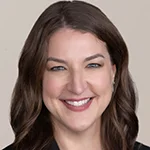 AB InBev has hired Donna Lorenson as chief communications officer and elevated the PR function to the senior leadership structure in the aftermath of the Bud Light marketing disaster.
AB InBev has hired Donna Lorenson as chief communications officer and elevated the PR function to the senior leadership structure in the aftermath of the Bud Light marketing disaster.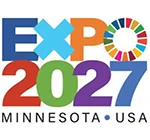 Tunheim handled the Minnesota USA World Expo bid committee, which on June 21 congratulated Serbia for landing the 2027 event.
Tunheim handled the Minnesota USA World Expo bid committee, which on June 21 congratulated Serbia for landing the 2027 event. United Minds, management consultancy, has launched Myriant, a business resiliency offering to help clients deal with the challenges during this era of misinformation, polarization and geopolitical upheaval.
United Minds, management consultancy, has launched Myriant, a business resiliency offering to help clients deal with the challenges during this era of misinformation, polarization and geopolitical upheaval. 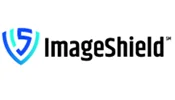 ImageShield, which guards against online image abuse, is looking for a communications pro to handle its PR and marketing campaigns.
ImageShield, which guards against online image abuse, is looking for a communications pro to handle its PR and marketing campaigns.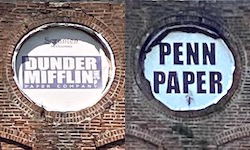 Who knew that there is a real paper company, Pennsylvania Paper & Supply, inside the iconic building seen at the opening of every episode of “The Office?”
Who knew that there is a real paper company, Pennsylvania Paper & Supply, inside the iconic building seen at the opening of every episode of “The Office?” 


 Have a comment? Send it to
Have a comment? Send it to 
No comments have been submitted for this story yet.